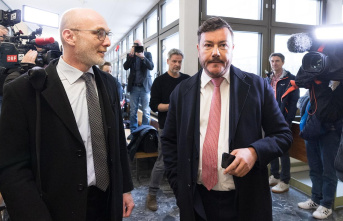They met each other in the concentration camp in Auschwitz. Were lovers and agreed to meet, when they once again were out of the nazi grip. And so went there for 72 years.
In all the years there was one question that nagged David Wisnia. A question, only the young love Helen Spitzer could answer.
The two were, respectively, 17 and 25 years, when in 1943 met behind the walls of the infamous concentration camp. He was jew from Poland. She the ditto from Slovakia.
It is The New York Times, who brings David Wisnias tale, which began when Helen Spitzer got the eyes up for the young man and asked a mutual acquaintance to introduce them.
David Wisnia noted that the Slovak woman stood out. That she was better than most of the others in captivity. Her clothes were also cleaner.
She had probably some of the privileges of the nazi guards, he thought, and before he knew it, they had agreed to meet the week after.
And they did. In hiding. They were lovers, and David Wisnia found out that Helen Spitzer worked at the office in Auschwitz, because she was a trained graphic designer and German. The job utilized to send coded messages to the resistance.
Even had David Wisnia for a while for the task to clear the corpses away. Similar from the people who jumped from the electric fences that surrounded the concentration camp, in impotence.
As the guards discovered his sangtalent, he was however drawn in order to entertain them. And by the side of the got he was employed to disinfect newly arrived prisoners clothes.
the Couple's secret meetings could have cost them their lives, and when the nazis intensified their killing of jews, put the relationship on hold. But they decided that they would meet at a specific time in a specific place in Warsaw a day.
In december 1944, David Wisnia sent to the concentration camp in Dachau, and on a death march through Poland. During the march managed he to overpower a SS-guard and run away.
By coincidence, he met the famous american unit 101st Airborne – known from the tv-series 'Band of Brothers'. Them he joined. Side by Side with the americans he fought against the germans. And when the war was over, he followed them back to the UNITED states, where his mother already was.
Here he has been ever since. He has integrated itself. Got children and grandchildren. He put life in the concentration camp behind him, and his oldest son managed to be teen, before he became familiar with his father's past.
But his children would know more, and with time, they managed to get their father to share his stories. Also the story of the slightly older Slovak Helen Spitzer.
A mutual acquaintance of the couple tried for many years after the war to set a meeting up between them since Helen Spitzer was in New York – not far from David Wisnias own home.
But Helen Spitzer never showed up. She had come on, and the same was David Wisnia, when not attributed to rejection, many thoughts. The previously mentioned questions filled the still, however, just as much as it always had done.
Had Helen Spitzer had something with his survival in Auschwitz to do? Why he was allowed to live when so many others died?
the Answer he got in 2016, since one of his sons took contact to Helen Spitzer and arranged another meeting. The meeting between the two former lovers took place in an apartment in New York city. 72 years had passed since they had last seen each other.
Helen Spitzer was bedridden. 98-year-old, with an ailing hearing and bad eyes. When David Wisnia got close enough, her eyes large and filled with life, tells David Wisnias 37-year-old son Avi to The New York Times.
He was with to the meeting and tells that the words flowed between the two. Helen Spitzer told that she had been married to an UN-man after the war, and that she had lived a global life as a humanitarian worker.
In two hours they talked about life during and after the war. Finally got the David Wisnia asked his question: "Did you do something that ensured my survival in Auschwitz for so long?"
Helen Spitzer held his hand up. Showed five fingers: "I saved you five times," she replied.
The now ageing woman told him that she after the war was taken to Warsaw, as agreed. She had been waiting for David Wisnia. That she had loved him. He answered, that he had also loved her. And so he sang for her, before they parted. They never saw each other again.
Helen Spitzer died in 2018. 100-year-old. David Wisnia is spending his time to tell his story. And in January, at 75-years anniversary of the liberation, he takes to the Auschwitz concentration camp and sing.
Date Of Update: 25 December 2019, 10:00










